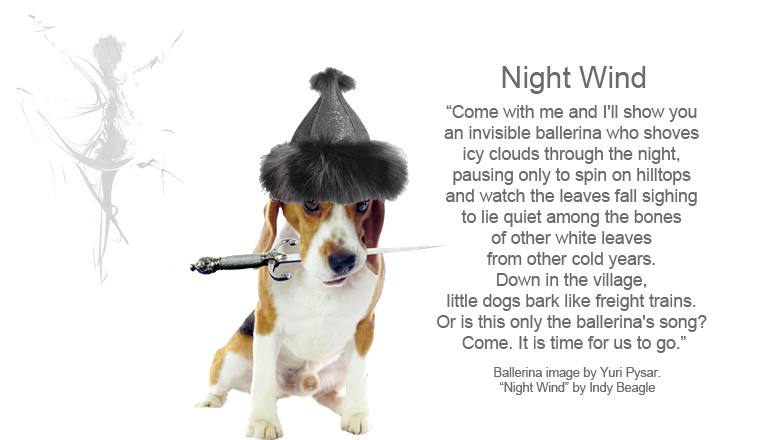People are being caught off guard by the quirky tale of Sunshine and Poobah.
Evidently, reading it cover-to-cover is a much different experience than reading it one chapter at a time. This funny little book is rapidly gaining a life of its own.
This is the backstory of how – like Frosty the Snowman – it came to life.
Jeffrey Eisenberg gave you the beginning of the backstory on the final pages of the just-released hardback, Be Like Amazon: Even a Lemonade Stand Can Do It.
“A few months ago we sought the advice of our good friend and mentor Roy H. Williams. We spent an entire day with him presenting the content we wanted to include in the book. We wanted to avoid the complexity of our earlier books, Waiting for Your Cat to Bark? and the textbook feel of Call to Action. While these books were both New York Times bestsellers they weren’t a fun or easy read. By the end of the day it was obvious to Roy that despite our best attempts to simplify and prune our content we were writing another textbook…. Roy reassured us that we had the right elements. He asked us if we trusted him to write the book for us. We did… By telling the story of Poobah and Sunshine’s road trip, he avoided getting bogged down in the details a nonfiction book drowns in. He didn’t do it with a simple parable. He did it by creating an entertaining story with realistic dialogue and character development that Bryan and I are incapable of.”
Here are a few tidbits Jeffrey failed to mention:
1. The original title was Brand Like Amazon. When our friend Ray Bard sent an email arguing strongly in favor of the name Be Like Amazon, I forwarded Ray’s email to Jeffrey and immediately bought the domain name.
2. I said, “We need to mention a Norman Rockwell ‘All-American’ business to give the title a visual anchor.” Jeffrey said “lemonade stand” and the title began to sparkle.
3. The Brothers Eisenberg presented a Powerpoint and we wore microphones so our conversation could be recorded and transcribed. That transcript is 40,324 words. The book is 22,961.
4. Jeffrey and Bryan provided all the Amazon research, the four pillars, and the principles that needed to be taught. I simply added the stories.
5. The cognoscenti will recognize the writing style of the book as “Robert Frank.” There is no omniscient narrator to tell you why a person said what he said or how it made the other person feel. Instead, simple nouns and verbs give the reader the raw material of an experience. Like an eavesdropper, the reader must figure out for themselves what is happening and why.
When writing “Robert Frank” you must choose:
- How to End
(Begin with the end clearly in mind and carefully select the details to be covered.) - Where to Begin
(Choose an interesting angle of approach.) - What to Leave Out
(Never say what people already know or can easily figure out for themselves. Your story accelerates when you say things in the fewest possible words.)
6. I knew I was going to have to fight for the story in chapter 3 about Moses ben Maimon, a Rabbi who lived about a thousand years ago. Knowing the brothers would be hesitant to spotlight the basic humanity and wisdom of Jewish business principles, I sent them this email before I let them read that chapter:
When you read Chapter 3, you’ll notice the old man talks briefly about Maimonides. He’s speaking from the perspective of a non-Jewish person who has Jewish friends and business associates. It fills an important hole in the narrative, so I’m going to veto your veto in advance, okay? 🙂
7. I give a nod to Cervantes in the closing scene when Poobah describes the book he has just finished reading – the same book that you, the reader have just finished reading – and buys a copy for Sunshine on Amazon. Cervantes invented this technique of self-referential metafiction in Part II Chapter 62 in which the knight and his squire visit a printer’s shop to read an unauthorized sequel to Don Quixote de la Mancha. Yes, Don Quixote reads Don Quixote in Don Quixote. How cool is that!
Good News: I’ve already begun the sequel to Be Like Amazon. It will be called Poobah Talks Marketing.
Next week I’m going to send a link to the opening chapter of that book to everyone who posts a review of the first book, Be Like Amazon: Even a Lemonade Stand Can Do It, on Amazon.com.
The third book in The Sunshine Trilogy will be called Sunshine On His Own. Books 2 and 3 are being written concurrently and will probably be published simultaneously.)
Indy Beagle says to tell you “Aroo” and that he’ll see you in the indigo rabbit hole.
Click his poem at the top of this page and you’re in.
Roy H. Williams
Roy and Pennie and all the Wizards of Ads
are planning a summer adventure in Nashville. Want to come?

David Barnett meets a lot of small business owners who are disappointed to learn their companies have zero market value without them. David is a recognized expert on business valuations. Do you own a business? Or do you simply have a job working for yourself? Or worse, is your business really just an expensive hobby? According to David, a salable business has systems, procedures and processes in place that don’t depend on a single individual. If you someday plan to sell your business, or you’d like to transform your business so that it will attract serious money from serious buyers, you need to hear what David tells roving reporter Rotbart. Check it out, Scout, at MondayMorningRadio.com

